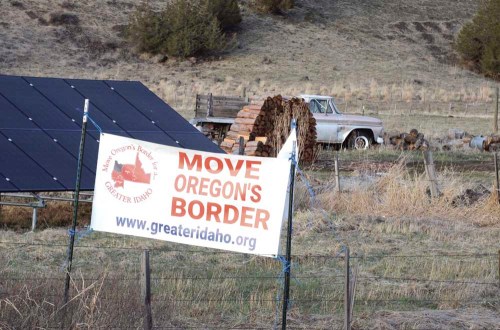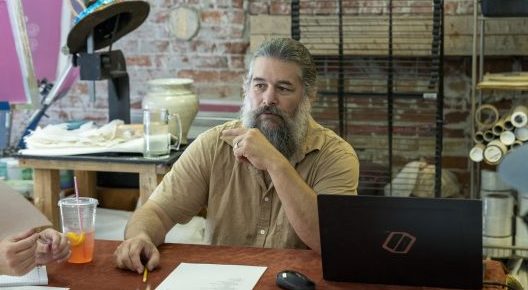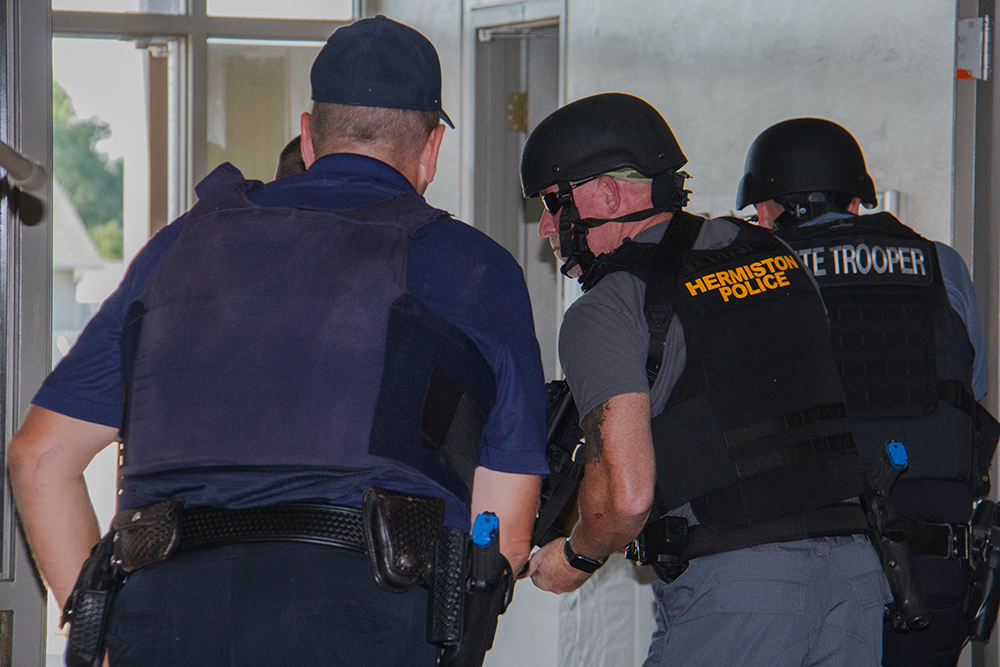Hard questions, brave answers: Online debate probes rural-urban divide
Published 4:45 am Saturday, June 15, 2024

- A sign just outside Enterprise reflects support for the Greater Idaho movement. An online debate on June 12, 2024 drew more than 125 participants to discuss the rural-urban divide in Oregon.
From across the state, more than 125 Oregonians gathered online Wednesday night, June 12, to spend two hours talking about an admittedly hard question: Can the state’s urban-rural divide be healed?
The session, organized by the Oregon branch of the nonprofit organization Braver Angels, was billed as a debate on this proposition: “Resolved: The Oregon Rural-Urban Divide is Insurmountable.”
Trending
It wasn’t a debate in the traditional competitive sense: Braver Angels, which believes in the power of respectful dialogue to heal the nation’s divisions, promised a civil event, and followed through on that promise. But the organization also urged participants to speak their minds.
“The No. 1 rule is to say what you believe,” said the event’s moderator, Oregon resident Cynthia O’Brien. “We can talk about anything; we can talk about hard things, no matter how controversial, if we do it in the right spirit.”
No winner was declared. Maybe nobody changed their minds because of anything they heard at the debate.
But every participant listened — and, occasionally, asked respectful questions about what they had heard.
The debate’s organizers said they chose the topic because they thought it was “foundational” to many other political divides across the nation. They referenced the emergence of the Greater Idaho movement, which seeks to realign a number of Oregon counties, mostly in rural areas, so they’re under the governance of Idaho.
So maybe it was fitting that Matt McCaw, the executive director of Greater Idaho, was the first to defend the proposition.
Trending
“There is an urban-rural divide in our state and it’s not just in Oregon, it’s across the country,” McCaw said. “And that urban-rural divide is insurmountable in the sense of trying to create policy that’s a one-size-fits-all for both sides. If you go down the line on just about any topic that we vote on — abortion or minimum wage or transgenderism or gun rights — you name it, you pick a topic, the people in urban centers tend to vote one way on those topics and the people in rural areas tend to vote the opposite way.”
“So what you have is two separate cultures that have fundamentally different views, outlooks on the world, fundamentally want different things for their communities,” he continued. “So if one of those two groups is trying to force their way of life, their policies, their culture, on the other, it leads to conflict, it leads to political tension.”
Speaking later in the debate, McCaw said the event generated “a lot of great conversation.”
But he added: “There is a divide. We all know it. Anybody who lives in Oregon knows that the Portland metro area is a world apart from Burns, Oregon, or any other Eastern Oregon county. Listening, understanding, these are all positives. But we do have real differences. … If we cannot address those differences in meaningful ways that are tolerable to people … we’re going to have conflict instead of peace.”
On the other hand
Not everybody who spoke during the debate believed the divide was insurmountable.
A woman from Pendleton who works with disabled people said she frequently had been frustrated by policies mandated by state government that weren’t good fits for Eastern Oregon. But she said she’s had frequent success in convincing state leadership to revise policies and procedures to better take into account the needs of the state’s rural areas.
“Change is possible, and it happens because of our efforts,” she said.
A Portland environmental attorney pointed to work she’s done in Grant County as evidence that collaboration can work. After pursuing litigation over forest plans, she said, she started to realize her work was having an adverse economic impact in the county.
“We had a lot of really difficult conversations,” she said. But she added: “When you have those kinds of conversations, you really do start to look at each other as people and not as positions. … We’ve been able to work together to reach across the rural-urban divide and do some good things for the forest and do some really good things for that community.”
Is the urban-rural divide surmountable? Yes, she said: “It just takes time and you’ve got to be willing to listen.”
Other speakers weren’t so sure.
A woman in Grant County said the tax burden in the state was reaching the point “where it is becoming almost unsustainable to continue to operate in Eastern Oregon” and other state laws, such as rules mandating overtime for farm workers, aren’t “allowing us to live the way that we want to live in the culture that we choose to live.”
Not everyone who participated in the debate was from Oregon. A woman from Eastern Washington said that region faces many of the same issues facing Eastern Oregon.
“When rural counties have to push and push and practically throw a tantrum to get listened to, when it takes of years of advocacy to explain … why things look different from a rural county, from a rural culture, from a difference in the available resources, on those days, it feels insurmountable,” she said.
And she said that the effort to close the divide has to come from the state’s urban areas as well: “There has to be more than an equal amount of pressure coming out of urban areas to even begin to make a dent in that insurmountable problem,” she said, adding that the divide won’t close “until the urban areas are as interested in finding out (about the divide) as we are in telling them about it.”
Other speakers argued the rural areas and urban areas of Oregon need each other economically.
“We are linked,” said a man from Haines. “And it’s going to be that way, and it needs to be that way. … The fact is, the state does listen to us and they will (listen) on economic issues” — but he noted that cultural issues may be more difficult to bridge.
A man in Corvallis said the rollout of broadband internet access across Oregon, including its rural areas, already is helping to unite the state.
“Whether you’re rural or whether you’re urban, having access to digital technologies, to broadband, to education, to health care, that is what’s bringing us together,” he said.
Braver Angels volunteers said they hope the debate will lead to sessions in each Oregon county shaped in part by the issues raised but also by local issues. In the meantime, though, they’ll prepare a report based on the debate that will be sent to participants. A video from the debate will be posted on the Braver Angels YouTube channel.









